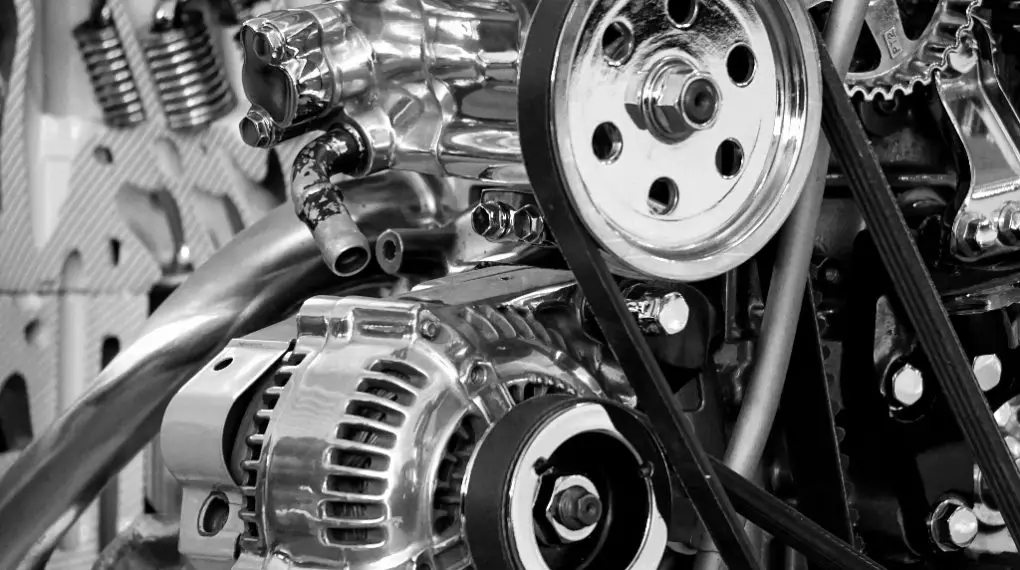Is your AC compressor in car not turning on? You’re not alone. This is a common issue faced by many drivers. This article will look at the typical culprits behind why it’s not firing up, and how you can get your AC working again!

Table of Contents
What Tells the AC Compressor to Turn On?
So, how does the AC compressor know when to kick into gear? It all comes down to a clutch system that engages and disengages the compressor based on your car’s AC needs. When you hit that AC button, the clutch says ‘Hey compressor, it’s time to chill out’!
Common Reasons for an AC Compressor in Car Not Turning On
Now that we know what an AC compressor is and what tells it to turn on, why might yours be giving you the cold shoulder? It could be an electrical hiccup or a mechanical mishap.
Electrical Problems
Just like any part of your car, the AC compressor relies on electricity to function. A blown fuse, relay issues, or a wiring problem might just be standing between you and a cool breeze.
Blown Fuse or Relay
Think of fuses and relays as the gatekeepers of your car’s electrical system. When they’re working properly, electricity flows and your AC compressor runs smoothly. But if a fuse is blown or a relay is faulty? It’s like a traffic jam on the highway to coolness.
Broken or Corroded Wiring
Wires play a crucial role in delivering electricity to your AC compressor. If they’re broken or corroded, it’s like trying to fill a bucket with a hole in it – you’re not getting very far!
Mechanical Problems
But it’s not all about electrics. Mechanical problems, such as refrigerant leaks or a seized compressor, can also cause your AC to break a sweat.
Refrigerant Leakage
Refrigerant is like the lifeblood of your AC system. But what if there’s a leak? Your AC compressor won’t have enough refrigerant to circulate, making it as effective as a fan on a hot day.
Seized or Broken Compressor
If your compressor has seized up or is broken, it won’t be able to pump refrigerant around your AC system. Imagine trying to pump a bicycle tire with a broken pump. Not happening, right?
Check out these other related articles…
AC Compressor Repair: The Complete Guide to Saving Your Cool
What Does AC Compressor Do? The Heartbeat of Your AC
Parts of an AC Compressor: A Detailed Guide
AC Compressor Noise: Your Easy Guide
AC Compressor Clutch Not Engaging: Why and How to Fix It
Diagnosing a Non-Working AC Compressor
Before we can fix your AC compressor, we need to find out why it’s not working. This involves checking electrical connections, refrigerant levels, and the compressor itself for any visible damage.
Checking Electrical Connections
Start by checking the fuses and relays associated with your AC system. If they look good, inspect the wiring leading to your AC compressor for any signs of damage or corrosion.
Checking Refrigerant Levels
If your AC system’s refrigerant level is too low, your compressor might not turn on. This can be checked using a gauge that measures the pressure in your AC system. Remember, more refrigerant doesn’t always mean cooler air!
Inspecting the Compressor for Physical Damage
Finally, give your AC compressor a good once-over. Look for any visible signs of damage such as cracks or oil leaks. If it looks like it’s seen better days, it might be time for a replacement.
Fixing AC Compressor in Car Not Turning On
Now that we’ve done the detective work, it’s time to roll up our sleeves and fix that AC compressor. Depending on what’s wrong, this could involve addressing electrical issues, fixing refrigerant leaks, or even replacing a damaged compressor.
Addressing Electrical Issues
If the issue is electrical, it could be as simple as replacing a blown fuse or relay. But if there’s a wiring problem, you might need a professional to help. Because messing with electricity? That’s a no-go for most of us.
Fixing Refrigerant Leaks
If you’ve got a refrigerant leak, you’ll need to locate it, fix it, and then refill your system with the right amount of refrigerant. Not a DIY job for the faint-hearted, but definitely doable.
Repairing or Replacing a Damaged Compressor
If your compressor is damaged, it might need to be repaired or replaced. This can be a big job, so unless you’re a seasoned car tinkerer, you might want to leave this one to the pros.